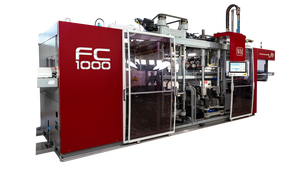December 1, 2004
Getting employees to follow procedures dictated by ISO or TQM is important, but becoming an excellent company requires something a bit more intangible-leadership.
The definition of stupidity, says Peter Docwra, is "continually doing the same thing but expecting a different result." Docwra, leader of the senior management team at the European Foundation for Quality Management (EFQM; Brussels, Belgium), is keen to help companies move far beyond stupid decisions toward becoming excellent organizations. Getting there requires many assets, but what differentiates truly excellent organizations is the person at the top, he says. "Leaders make a big difference. Leadership sets culture and values within an organization. Sometimes they set very poor ones," he laments, pointing to recent scandals at Parmalat, Enron, and other corporations.
Beyond the basic funk
Unfortunately, it is easy for leaders to let their businesses get stranded in the "business-as-usual" stage, says Docwra. "Firms stuck in this stage have a general sense of direction, but there is no real strategy. The only real measures used by these firms are financial ones, which tell a lot about the decisions made years ago, but help very little with the ones you have to make today."
Getting to excellence from business-as-usual requires an investment in time and effort. "The journey to excellence is like a ladder-you don''t get to the top without hitting all of the rungs," he says.
Firms moving in the right direction usually must pass through meeting ISO or other requirements set by an outside organization. Meeting these is no longer an option for many plastics processors, but simply meeting them should not be a final goal, says Docwra, since following ISO or other rules "often leads simply to conformance to rules, but not really to a measure of excellence."
After meeting ISO requirements, many companies often move on to Total Quality Management (TQM), which is where emotion and a strong business focus really set in, says Docwra. TQM often involves implementing Six Sigma or Lean Manufacturing into an organization as a means to limit mistakes or raise output, and is a good way for many firms to improve their bottom lines and improve their competitiveness.
Indeed, TQM helps many firms get out of the habit of making gut decisions. "About 75% of management decisions are made on instinct, not on factually reliable information," he notes. But TQM can cause firms to focus on improving themselves bit by bit. "Results orientation has to mean successfully focusing on all the balls at once. Be agile and responsive to all stakeholders," he says.
The final rung
Though acknowledging the importance of ISO and TQM, Docwra insists that excellence comes only if a business is blessed with leaders who impart a system of values and cultures that let employees know they are highly valued-but also lets them know that just meeting requirements, or following a plan, is not the end game. Excellence comes when every employee feels dedicated to improving the organization. Ideas have to flow through a firm, top to bottom and vice versa. "The importance of the intellectual capital of employees cannot be overemphasized," he says.
For those firms striving for excellence, there is no respite. "Excellence is not an act, but a habit," Docwra says. "How you do something is just as important as what you achieve." If leaders can imbue their organizations with cultures that are keen to help customers get better, rather than simply profiting from them, then the tangible results-profits-begin to pour in as word spreads.
"Perception results are to us even more important than quantified ones," he explains. "The real truth is whatever your customer believes about you."
Matthew Defosse [email protected]
You May Also Like


